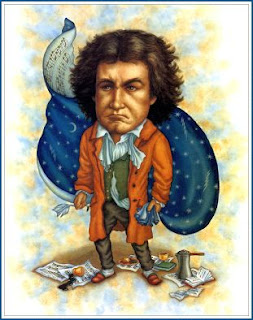30 August 2020
Dear B_:
We can see blue skies again now the forest fires debris contained, and the fires under control. Being nearing the end of summer, there is not much disagreement whether COVID-19, forest fires, and Hurricane Laura, haunt the sunshine of one’s summer life.
Your recent letter was unexpected but certainly welcome!
Since the Fall, "our stitching and unstitching has been naught." Still, our world is harboring misty dreams, yearning for long lasting “days of wine and roses.”
The palimpsest tells us otherwise, however. From Actus reus to Zarathustra, are layered with war, famine, pestilence, death, and so forth. These sorrows, more often than not, are ignited by the ever present Kurosawa-like “Rashomon” POV tinder. Notwithstanding these cacophonous realities, “our daily bread” is still being provided as you intimated.
Insinuated into life tapestry this year is COVID-19. We are now “unstitching” this distempered thread. The unraveling process is slow, with the Rashomon perceptions and preventive measures change frequently. More’s the pity, nonetheless, for those reside in memory care or assisted living who are isolated from loved ones. Though you and I “have heard the chimes at midnight,” it is time we exclaimed the Charlie Brown maxim, “Good grief!”
The U.S. pandemic response is an analogy; a reminiscence of Pope Julius II and Michelangelo crisp exchange seen on the silver screen. Agonizing over the Sistine Chapel ceiling fresco, looking up Pope Julius said, “When will you make it end?” Looking down from the ceiling on a scaffold, Michelangelo was flustered by the Pope’s implied priorities. He cast down a repartee, “When I am finished.” I suspected beneath the latter’s toil to paint the Last Judgment on the chapel ceiling, he sensed an inner ecstasy percolating. The finished fresco would be his testimony and thanks to God. Well, we are waiting for Dr. Fauci to percolate a brew of joyous news so we can pour it on COVID-19.
As for Rainer Maria Rilke, my copy of his works was published in 1918. The few verses from which you quoted in the movie credits, “Jojo Rabbit,” are taken from a later volume of Rilke’s poem, “The Book of Hours: Love Poems to God.” Undoubtably, Rilke’s works are popular in New Age and self-help quarters. The complete poem can be found on various Internet poetry sites.
You may read the poem credited in the movie here: The Book of Hours: Love Poems to God.
Rilke’s spirituality dawned during his visit to Russia in the late 19th century. His admiration of the Russian Orthodox practices and the works of Dostoevsky spawned his syncretic vision of a Christian god. In existentialism, man is always at the center of a given moment of time and space; his future is not yet, and his past no longer. So Rilke stood at various moments of time and space intersects, pontificating (pun) the beauty of selectively perceived Christian elements and its God. His “Book of Hours” was never about God’s demonstrated historical love and mercy. His syncretic Christian god is always subordinate to himself, the existentialist. In Rilke‘s syncretism, he sought the power of Christianity while giving up what is uniquely Christian. Thus orthodox Christianity he disdained, and the gospel of salvation eschewed. Rainer Maria Rilke died in his own sandbox of existential righteousness at the age of 51, three years before the Great Depression.
When King Lear exhaled his last, Shakespeare simply wrote two words: “He dies.” These are the two profound and abject words in all walks of life since Eden and east of it (not the Steinbeck fiction). Life is uncertain, and death is sure in “a field where glory does not stay.”
Only God’s glory is everlasting, His righteousness just, His love for man has no beginning nor end, and His gospel of salvation is certain.
Take care.
L'




























